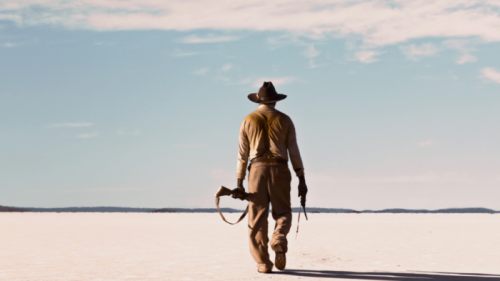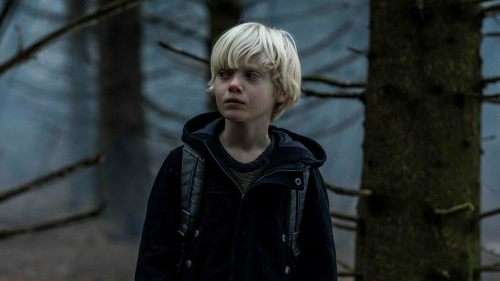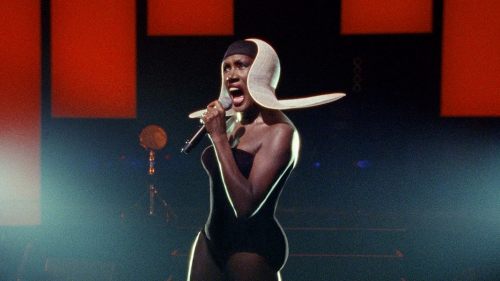TIFF 2017 Review: There’s Sour At The Heart Of SWEET COUNTRY
At their best, Westerns form one of the most direct ways that cinema has in dealing with big ideas. Matters of life and death play out on a landscape that dwarfs and humbles the human participants, notions of fairness, equality or pride elevated by the harsh environment and beating sun. Beyond the superficial trappings of the horses, guns and gritted teeth there’s a poetic opera at play, where emotions are heightened and the stakes as high as possible.
Onto this canvas formed by genre tropes and narrative expectations comes Warwick Thornton’s remarkable Sweet Country to mix things up a bit. Set in the wilds of the Northern Territory, the film’s local is as hardscrabble and austere as any Leone pic. We meet a kindly religious man named Fred Smith (Sam Neill) who treats his Aboriginal workers with dignity, yet still doesn’t bat an eye encouraging them to help out an obviously unsuitable neighbour named Harry March (Ewen Leslie) who is looking for “blackstock” to help him on his property. When things go awry, Sergeant Fletcher (Bryan Brown) goes on the hunt, looking for justice.
The core of the film rests upon the complex and sympathetic performances by the Aboriginal cast, starting with Hamilton Morris’ remarkable turn as Sam Kelly. It’s through Kelly’s eyes that we see much of the film’s true grit, and his anguish and quiet dignity are the film’s highlight. With a thankless role as Archie, Gibson John has probably the hardest task to pull off, but he plays the ambivalence beautifully, vacillating between sycophantic helper to his master to a far deeper character who himself has a backstory as tragic as any.
It’s this complexity that sets the film apart – March isn’t simply some bumbling racist but a man wrecked by alcohol and demons from the Great war – providing context but never excuses for the abhorrent behaviour. Similarly, the way that young Philomac (played by twins Trevon and Tremayne Doolan) undergoes his transition in the film speaks to the myriad shades at play, with the cause of self-preservation taking the place of any grand moral stand.
With a complex yet coherent editing style, Thornton’s film beautifully emphasises certain key events before they happen, allowing the narrative to be underlined without resorting to pure linearity. This bouncing back and forth in time could in lesser hands prove annoying or obnoxious, but here it works splendidly. Similarly, the eschewing of musical score and deliberate pace of the performance makes the work feel even more rooted in its locale, the sounds of the surroundings providing its own soundtrack.
Sweet Country has the trappings of a slave drama mixed in with the conventions of a Western, making for a remarkable and effective genre mashup. It’s a sophisticated tale of justice, and how institutions can rely upon grand precepts but the nature of man is to do what their baser instincts drive them to do. There are no easy answers in this film, and it leaves one more questioning than when one begins. This is not merely the inversion of the Western myth, though it is that, it is equally a provocative, politically sophisticated look at a history of Australia that has been proverbially whitewashed from general discourse.
Thornton asks his audience to confront ugly truths, where justice can be undermined by systemic evils that lay beneath. The message is bleak yet not entirely hopeless, a tragedy that earns its tears. There’s sour in Sweet Country that we see play out, and thanks to some gifted performances and taut, exceptional filmmaking, we’re treated to a film that’s as complex and engaging as the topics it tackles.



